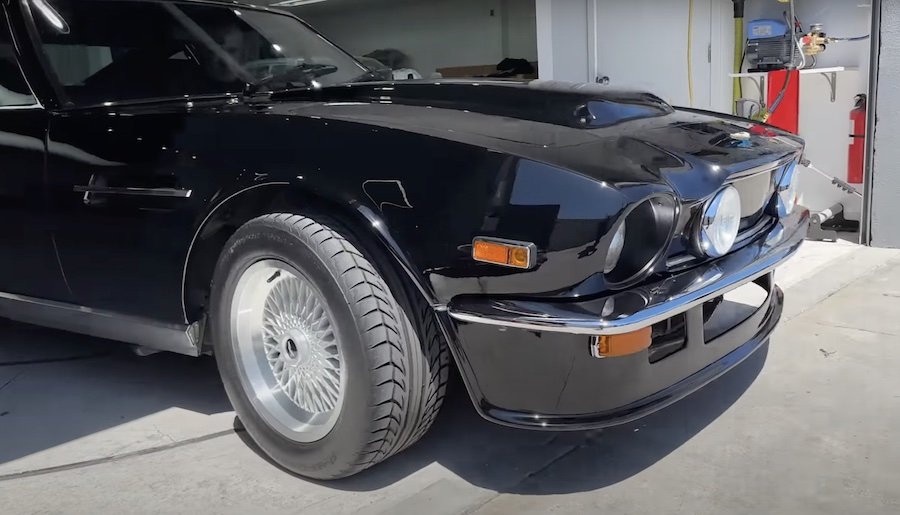1977 Aston Martin Vantage Shines Like A Jewel After Restoration Detail

In 1977 the Aston Martin V8 Vantage was the fastest car in the world, with a top speed of 170 mph. It was a stunning car powered by a hand-built, 6.3-liter V8 producing 310 horsepower and painted 20 coats of lacquer, giving it a deep jewel-like shine. It looks especially good in black, like the one in this video on I Am Detailing's YouTube channel.
The paint correction is especially satisfying to watch on this car. When the Aston Martin Vantage arrives at the shop, it's covered in a layer of dust and neglect. After masking off the window trim and other chrome parts, the paint is sectioned off based on its thickness and buffed to a high shine.
Next, the trim is subjected to thorough cleaning and polishing. Parts like tail lights and doorsill plates are removed and hand-buffed. Turn signals and side marker lights are cleaned so the lenses and chrome surrounds are restored to a high shine. Even the chrome tips on the tailpipes are carefully scrubbed until they look new.
The interior gets the same scrutiny and detailed cleaning. Like the engine and much of the car, everything inside is handbuilt, including the hand-stitched leather upholstery. Everything is hand cleaned, polished, and conditioned down to the seatbelt brackets. No piece of carpet or trim piece is left unturned.
Finally, the exterior paint is treated ceramic to maintain and protect the finish. It is applied to every surface and hand buffed to a high, glossy shine. The ceramic coating protects the paint and seals it, making it easy to wipe down and keep clean. On cars like the Aston Martin V8 Vantage, with its hand-rubbed lacquer, it's a good investment to preserve the finish, keeping it looking new.
The Aston Martin V8 Vantage was an evolution of the original DBS. In 1972, production of the six-cylinder ceased, and the car was restyled with twin headlamps and a pronounced hood scoop to accommodate the V8's four Weber carburetors. Some critics derided the styling calling it a British Mustang for its resemblance to the 1969 and 1970 Ford Mustang GT. Others thought the styling improved the looks of the original DBS, tying the Vantage back to the DB6 visually. Either way, the Vantage remained the preeminent Aston Martin GT until the arrival of the DB7.
Notícias Relacionadas
